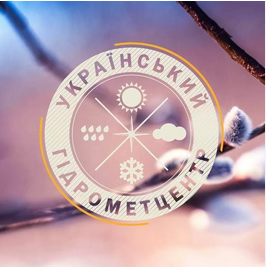
Chinese smartphone manufacturers have notified their partners of an increase in purchase prices, which could result in retail prices for devices rising by 15-30%, with smartphones bearing the new price tags going on sale in March-April 2026.
The most significant price increases are expected in the mid-range and high-end segments, as well as for models with increased built-in memory and storage capacity. Market participants cite the rising cost of components responsible for device memory, primarily RAM and ROM modules, as one of the reasons for the price increases.
The backdrop for the price increase is being formed on the global memory market: due to rapid growth in demand from AI infrastructure, DRAM and NAND manufacturers are reallocating capacity in favor of more marginal solutions for data centers, which is squeezing supply for consumer electronics and supporting the growth of memory prices.
In 2025, Ukraine increased onion imports by 3.2% compared to 2024, to 23.16 thousand tons, and in monetary terms, imports grew by 18.1%, to $29.71 million, according to the State Customs Service.
The largest suppliers of onions to Ukraine at the end of the year were the Netherlands (34.22% of supplies in monetary terms), China (29.68%), and Egypt (12.89%).

On February 1, Ukraine will experience cold weather with temperatures of -20-25°C at night and -12-17°C during the day; in the Carpathian region, Dnipropetrovsk, Donetsk, and Luhansk regions, temperatures will be 15-20° below zero at night and 9-14° below zero during the day; in the southern regions, temperatures will be 9-14° below zero at night and 4-9° below zero during the day; in Crimea and Zakarpattia, temperatures will range from 1-6° below zero at night and during the day (during the day in Zakarpattia, temperatures will be around 0° in some places), according to the Ukrainian Hydrometeorological Center.
No precipitation, except for snow in the southeastern part of the country at night. Roads in some parts of the country will be icy. The wind will be mainly from the north, 5-10 m/s.
In Kyiv on Sunday, February 1, the weather will be cold with no precipitation: temperatures at night will be 21-23° below zero, and during the day 14-16° below zero. There will be icy patches on the roads in some places. The wind will be from the north, 5-10 m/s.
According to data from the Boris Sreznevsky Central Geophysical Observatory in Kyiv, on February 1, the highest daytime temperature was 8.4°C in 2002, and the lowest nighttime temperature was -28.8°C in 1956.
On Monday, January 2, very cold weather is forecast with temperatures of 22-27° below zero at night (in some northern regions -30°) and 14-19° below zero during the day. in the Carpathian region, Dnipropetrovsk, Donetsk, and Luhansk regions, temperatures will range from -17 to -22°C at night and -10 to -15°C during the day; in the southern regions, temperatures will range from -9 to -14°C at night and -6 to -11°C during the day; in Crimea and Zakarpattia, 5-10° at night and 1-6° below zero during the day.
No precipitation, except for snow at night in the far south and during the day in the south-eastern part. Icy conditions on some roads across the country. Winds mainly from the north, 3-8 m/s.
In Kyiv on Monday, very cold weather without precipitation: temperature at night 24-26°, during the day 16-18° below zero. Icy conditions on the roads in some places. Wind from the north, 3-8 m/s.

Schneider Electric, the global leader in energy technologies, today announced that its plant in Wuhan (China) has been recognized by the World Economic Forum (WEF) as a Global Lighthouse for Talent—one of only three sites worldwide to receive this designation.
The Global Lighthouse Network is a World Economic Forum initiative that recognizes advanced manufacturing sites and value chains that have achieved exceptional results in productivity, supply chain resilience, customer centricity, sustainability, and talent development. The initiative was co-founded with McKinsey & Company and is supported by an advisory board of industry leaders who collectively shape the future of global manufacturing.
A new award category—Talent Lighthouse—identifies manufacturing sites that achieve a transformational impact on the workforce through advanced solutions in work process and safety design, talent planning, engagement and onboarding, development, and workforce effectiveness.
The Wuhan plant became Schneider Electric’s ninth Lighthouse site globally and the first recognized for talent development, complementing the company’s eight other Lighthouse factories and distribution centers, including five Sustainability Lighthouses.
As Schneider Electric’s strategic supply chain hub in China and a model of digital manufacturing transformation, the Wuhan plant faced significant workforce challenges driven by rapid automation and a 239% expansion of its product portfolio. Initially, only 20% of employees had automation skills, onboarding new employees took 75 days, and technical staff turnover reached 48%.
Over the past five years, the plant increased its automation level by 55% and expanded its product portfolio by 239%, creating a critical shortage of qualified personnel. To address these challenges, Schneider Electric implemented a people-centered “workforce of the future” model that combines technology, partnerships, and continuous learning.
“The Fourth Industrial Revolution is as much about people as it is about technology,” said Mourad Tamoud, Chief Supply Chain Officer at Schneider Electric. “With our Wuhan plant, we have demonstrated that when AI and human potential work together, organizations can build resilient, agile, and future-ready teams—while ensuring that technology serves its ultimate purpose: delivering more value to customers.”
“Today, competitiveness is no longer determined solely by efficiency, but by the ability to sense, adapt, and respond quickly,” said Kiva Allgood, Managing Director at the World Economic Forum. “This year’s industrial transformation examples show how intelligently driven operations scale, placing resilience and sustainability at the heart of manufacturing companies’ activities.”
This achievement underscores Schneider Electric’s commitment to developing future-ready talent, building an agile organization, and fostering a culture that unlocks people’s potential and drives innovation.
Related resources:
About Schneider Electric
Schneider Electric is a global leader in energy technologies that delivers efficiency and sustainability through electrification, automation, and digitalization of industry, business, and homes. The company’s technologies enable buildings, data centers, factories, infrastructure, and power grids to operate as open, interconnected ecosystems, improving productivity, resilience, and environmental performance. Schneider Electric’s portfolio includes smart devices, software-oriented architectures, AI-based systems, digital services, and expert consulting. With 160,000 employees and 1 million partners in more than 100 countries, Schneider Electric consistently ranks among the world’s most sustainable companies.
Discover the latest energy technology insights on Schneider Electric Insights

Olevsk Bread Factory PJSC (Olevsk, Zhytomyr region) will hold its annual general meeting of shareholders on March 5, 2026, in a remote format, according to the company’s announcement in the SMIDA information disclosure system.
According to the announcement, the date for compiling the list of shareholders eligible to participate in the meeting has been set for March 2, 2026. Ballots for voting (on issues other than the election of bodies) must be submitted no later than 11:00 a.m. on February 23, 2026, and the depositary institution will continue to accept ballots until 6:00 p.m. on March 5.
The agenda includes, in particular, consideration of the supervisory board’s report for 2025, approval of the results of financial and economic activities for 2025, and distribution of profits (it is proposed to allocate 5% of net profit to reserve capital, with the remainder going toward development and strengthening of the material and technical base). Shareholders are also invited to decide on the extension of the lease agreement for one calendar year and the lease of premises, fixed assets, and transport of Olevsk-Khleb LLC (code 39508687).
Oleksky Bread Factory PJSC (EGRPOU code 00375964) was registered on December 25, 1996, and is located in Oleksky (13 Kooperativna Street). Its main activity is the production of bread and bakery products (KVED 10.71). . According to Opendatabot, the company’s revenue for 2024 amounted to UAH 1.667 million, net profit – UAH 156 thousand, asset value – UAH 4.864 million; director – Oleg Nechiporuk.

In 2025, Ukraine imported 93.2% more cabbage than a year earlier, amounting to 48.41 thousand tons, while procurement costs increased by 86.1% to $44.90 million, according to the State Customs Service.
The main suppliers of cabbage were North Macedonia (31.29%), Poland (24.05%), and the Netherlands (13.79%).